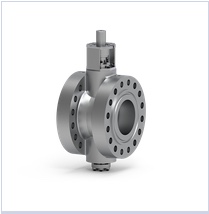Question
-
What process and operational areas have refiners demonstrated a positive ROI in the application of artificial intelligence and machine learning strategies?
Feb-2025
Answers
-
Sanjana Nair, Canvass AI, sanjana.nair@canvass.io
AI and machine learning are unlocking significant value for refiners by enabling more precise, data-driven decision-making across critical operational areas. Key areas where refiners have achieved measurable ROI include:
1: Octane Target Optimisation - Traditional octane estimation methods often lead to blending conservative octane targets, resulting in costly giveaways. Canvass AI’s Octane Target Optimisation™ (OTO) Solution addresses this challenge by integrating historical and real-time data to predict octane levels at the pre-blending stage. The solution enables refiners to fine-tune blending recipes in real-time, reducing octane giveaways and achieving savings of up to $10 million annually** in a single refinery. https://www.canvass.io/resources/octane-target-optimization-solution
2: Heat Exchanger Fouling Management - Fouling in heat exchangers impacts operational efficiency and increases energy costs. By leveraging predictive AI models, refiners can forecast fouling and schedule maintenance proactively, reducing costs by over $3 million annually while enhancing maintenance schedules.
3: Rotating Equipment Predictive Maintenance - Predictive AI tools enable refiners to monitor rotating equipment such as compressors and pumps, anticipating potential failures before they occur. This approach has saved refiners over $20 million by minimising unplanned downtime and extending equipment lifespan. https://www.canvass.io/resources/canvass-catalyst-predictive-maintenance-ai-models-for-gearbox-failure-prediction
4: Co-generation Unit Optimisation - Boilers and turbines often supply energy to various refinery units. AI-driven insights enable operators to adjust setpoints dynamically, optimising energy use based on real-time efficiency metrics. For instance, Canvass AI has helped reduce emissions and energy use in similar applications, saving $330,000 annually while cutting over 9 million pounds of CO2 emissions. https://www.canvass.io/resources/achieving-sustainable-operations-radek-rybicki-of-ingredion-at-arc-industry-forum-2022
5: Crude Unit Mass Balance - Refiners have leveraged AI to enhance mass balance accuracy in crude units, improving profit margins by $1 million annually through more efficient allocation and resource utilisation. https://www.canvass.io/resources/solving-mass-balance-in-crude-unit-with-industrial-ai These examples showcase how AI and ML are not just tools but enablers of smarter operations, higher efficiency, and sustainability. Solutions like those provided by Canvass AI empower refiners to achieve these results by integrating advanced algorithms with user-friendly platforms that require no specialised data science expertise.
Jan-2025
-
Heather Gilligan, Imubit, heather.gilligan@imubit.com
Artificial intelligence (AI) and machine learning strategies are being applied across all process and operational areas in many different business applications. Some have been in place for many years, such as machine learning to find anomalies in the operation of rotating equipment as part of predictive maintenance. However, it was only recently that AI and machine learning strategies moved from an advisory capacity to closed loop, where an action is automatically executed as a result of the AI model calculation.
In this newer world of closed-loop AI optimisation, Imubit is seeing refiners capture the highest value when applying the technology to complex and nonlinear processes. Some notable applications include conversion units, such as FCCs and hydrocrackers, and multi-unit feed and multi-unit product optimisation. One example of the latter involves balancing T90s across multiple units to push the diesel pool to the T90 limit and upgrade molecules from gasoil.
Some of the quantified benefits that have been reported publicly by customers using closed-loop AI optimisation include:
• 0.5°F improvement in average ULSD T90 vs baseline (reported by Delek US at 2024 AFPM Summit)
• 2% FCC debutaniser tower throughput capacity increase, removing bottleneck and allowing them to push FCC conversion (reported by Big West Oil in June 2024 Imubit webinar)
• FCC liquid volume yield improvement of 0.6% (reported by Big West Oil in June 2024 Imubit webinar).
• Reduced conservatism in diesel flash target by 2°F, enabling increased, on-spec, diesel throughput (reported by Big West Oil in June 2024 Imubit webinar).
• 25% reduction in sub-optimal coke drum cycles significantly reducing coker giveaway (reported by Marathon Petroleum Corporation Garyville Refinery at AFPM Summit 2024).Jan-2025

















